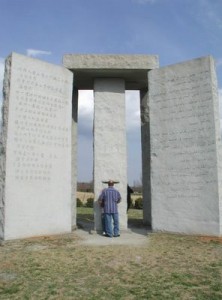I got into a pissing match with Eric S. Raymond, the famous programmer, author and Open Source Software advocate. I want the opinion of others, preferably people with no specialized programming knowledge, to tell me if I read one of his responses correctly.
I objected to what I regard as a hysterical over reaction to a patent application Apple filed for an infrared augmented reality tag system. The technical issues aren’t that important at the moment.
I would like you good readers to read one of my comments and Raymond’s next response and then answer some questions after the jump. Please don’t read my questions until you read Raymond’s response because I don’t want to prejudice your impressions.
Here is my comment. The only thing you really need to know before reading Raymond’s response is that it was he who used the phrase “complete control” in the parent post.
The parent post is here if you want to read it.
Now, here are my questions:


